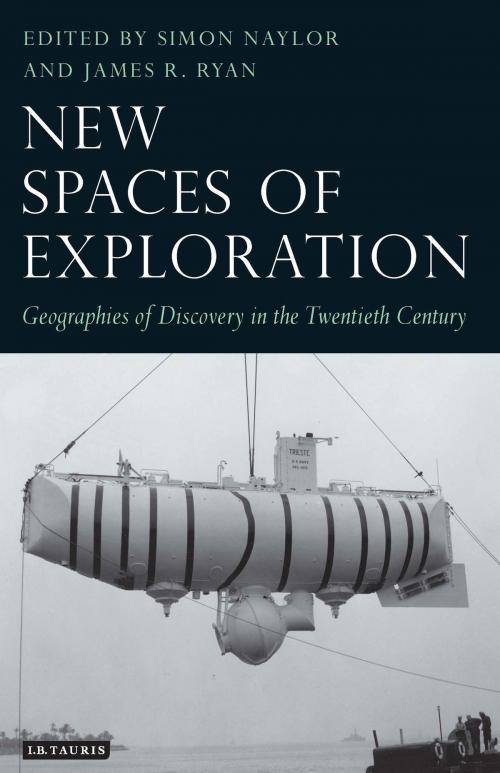New Spaces of Exploration
Geographies of Discovery in the Twentieth Century
Nonfiction, Social & Cultural Studies, Social Science, Human Geography, Anthropology, Science & Nature, Science| Author: | ISBN: | 9780857731890 | |
| Publisher: | Bloomsbury Publishing | Publication: | December 18, 2009 |
| Imprint: | I.B. Tauris | Language: | English |
| Author: | |
| ISBN: | 9780857731890 |
| Publisher: | Bloomsbury Publishing |
| Publication: | December 18, 2009 |
| Imprint: | I.B. Tauris |
| Language: | English |
On the 2 March 1899 the British flag was hoisted on the Antarctic continent. The event - recorded in the first ever photograph taken on Antarctica - claimed possession on behalf of the British crown. A century later, 14,000 feet beneath the North Pole, a mini-submarine attached to a nuclear-powered ice breaker affixed the Russian flag to the Arctic seabed, and 213 miles above the Earth a Chinese astronaut waved the flag of the People's Republic.
For many the dawn of the twentieth century ushered in what Joseph Conrad called 'Geography Triumphant', an era where the world map had few if any blank spaces left to discover and the figure of the lone explorer motivated by a noble quest for knowledge and adventure was banished for ever. The age of exploration was supposedly dead. New Spaces of Exploration challenges this assumption. Focussing specifically on exploration in the twentieth century the authors demonstrate how new technologies and changing geopolitical configurations have ensured that exploration has remained a key feature of our rapidly globalizing world.
New Spaces of Exploration brings together scholars from a wide range of backgrounds - including historical, political, and cultural geography, history of science, cultural studies, art and cartography - to explore the spaces and politics of exploration over the past hundred years. Ranging widely in their geographical focus - from Europe and Asia to Australia, and from the polar regions to outer space - they demonstrate the increasing diversity of modern exploration and reveal the continuing political, military, industrial and cultural motivations at play. The result is a major contribution to our understanding of the significance of exploration in the twentieth century.
Contributors: E. Baigent, C. Collis, K. Dodds, F. Driver, M. Godwin, J. Hill, F. Korsmo, F. MacDonald, S. Naylor, J. Ryan, N. Thomas, K. Yusoff.
On the 2 March 1899 the British flag was hoisted on the Antarctic continent. The event - recorded in the first ever photograph taken on Antarctica - claimed possession on behalf of the British crown. A century later, 14,000 feet beneath the North Pole, a mini-submarine attached to a nuclear-powered ice breaker affixed the Russian flag to the Arctic seabed, and 213 miles above the Earth a Chinese astronaut waved the flag of the People's Republic.
For many the dawn of the twentieth century ushered in what Joseph Conrad called 'Geography Triumphant', an era where the world map had few if any blank spaces left to discover and the figure of the lone explorer motivated by a noble quest for knowledge and adventure was banished for ever. The age of exploration was supposedly dead. New Spaces of Exploration challenges this assumption. Focussing specifically on exploration in the twentieth century the authors demonstrate how new technologies and changing geopolitical configurations have ensured that exploration has remained a key feature of our rapidly globalizing world.
New Spaces of Exploration brings together scholars from a wide range of backgrounds - including historical, political, and cultural geography, history of science, cultural studies, art and cartography - to explore the spaces and politics of exploration over the past hundred years. Ranging widely in their geographical focus - from Europe and Asia to Australia, and from the polar regions to outer space - they demonstrate the increasing diversity of modern exploration and reveal the continuing political, military, industrial and cultural motivations at play. The result is a major contribution to our understanding of the significance of exploration in the twentieth century.
Contributors: E. Baigent, C. Collis, K. Dodds, F. Driver, M. Godwin, J. Hill, F. Korsmo, F. MacDonald, S. Naylor, J. Ryan, N. Thomas, K. Yusoff.















